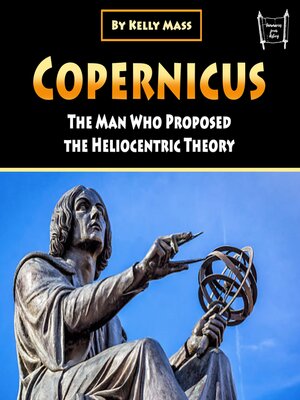
Sign up to save your library
With an OverDrive account, you can save your favorite libraries for at-a-glance information about availability. Find out more about OverDrive accounts.
Find this title in Libby, the library reading app by OverDrive.



Search for a digital library with this title
Title found at these libraries:
| Library Name | Distance |
|---|---|
| Loading... |
This audiobook is narrated by a digital voice.
The bells of St. John's Cathedral rang out across the medieval city of Toruń on February 19, 1473, marking the birth of a child who would one day move the Earth from the center of the universe and set it spinning around the Sun. Mikołaj Kopernik, as he was christened in the Polish tongue, entered a world poised between the dying embers of the Middle Ages and the dawning light of the Renaissance, where ancient wisdom competed with new learning and the Catholic Church's authority faced challenges from humanist scholars who dared to question received truths. Born into a prosperous merchant family in this thriving Hanseatic trading city on the banks of the Vistula River, young Nicolaus would inherit not only material comfort but also the intellectual curiosity and independence of thought that would enable him to challenge the very foundations of medieval cosmology.
The cultural landscape of late fifteenth-century Poland provided a unique environment for intellectual development, as the Kingdom of Poland had become a crossroads where Eastern Orthodox, Catholic, and emerging Protestant traditions mingled with the humanistic learning that was spreading northward from Renaissance Italy. Toruń itself embodied this cultural synthesis, as German merchants, Polish nobles, and immigrant scholars from across Europe created a cosmopolitan atmosphere that valued both practical success and scholarly achievement. The city's position along major trade routes connecting Northern and Southern Europe exposed its residents to diverse ideas and influences while its relative political independence from both the Holy Roman Empire and the Polish crown created space for intellectual experimentation that might have been more difficult in territories subject to more rigid religious or political control.







